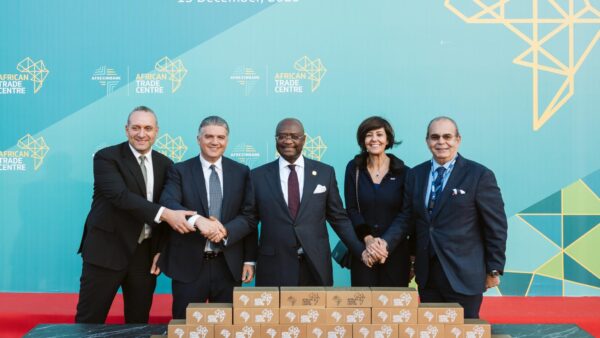The United Arab Emirates (UAE) has launched a competition to find ways of meeting a looming crisis in water resources. Over the next 18 months, four companies will compete to develop ideas to produce water in more efficient and sustainable ways.
The contest comes after researchers warned that the growing Gulf state could run dry within 15 years.
The companies are Abengoa of Spain, Suez Environment and Sidem of France, and Trevi Systems of America.
This week they switched on small-scale experimental desalination plants at the Al Ghantoot pilot facility, run by Abu Dhabi’s Masdar Institute.
We hope that with this approach, we will be able to commercialise these technologies and become a key player in the desalination industry as a total solution provider and developer– Mohammed El Ramahi, Masdar Clean Energy
The projects will together desalinate 1,500 cubic metres of water a day, enough for around 500 homes, using less than 3.6 kWh per cubic metre compared with the average energy use of 5 kWh.
“In our region, water is more important than oil and we are trying to find solutions to address that,” Dr Ahmad Belhoul, Masdar’s chief executive, told media.
“Desalination is an energy-intensive process, in the UAE energy is water and water is energy, therefore to provide a sustainable solution to water we have to work on the sustainability side.”
The competition comes after researchers at UAE University at Al Ain argued that a combination of rapid population growth and wasteful practices could combine to drain the region’s aquifers by 2030.
This would force the UAE to rely entirely on desalination plants and wastewater treatment for all water uses.
At present, groundwater makes up 70% of the country’s water resources, with 33 desalination plants providing 24% and wastewater 6%. Most of the cities’ drinking water comes from desalination, with the groundwater being used for irrigation.
The prospect is that a lack of water will lead to a collapse of the UAE’s agricultural sector and greatly reduce the region’s food security.
At the same time it would expand the amount of energy required to provide drinking water, and increase the effects of hypersaline water on the Gulf’s marine ecosystems.
The agricultural sector’s use of water has grown from 950 million cubic metres in 1990 to 3.3 billion in 2010. This expansion was itself driven by population growth in the UAE, which has increased from 232,000 in 1970 to 9.3 million in 2013.
The new techniques being pioneered by the four competing companies all use solar energy for the heating stage of desalination. They are trying to achieve a more efficient process of osmosis to remove salt, and a way of making productive use of the resulting brine.
Abengoa, Sidem and Suez are trying to find a more efficient way of effecting “reverse osmosis”, a filtration technique that has been used for desalination for more than 60 years.
In our region, water is more important than oil and we are trying to find solutions to address that– Dr Ahmad Belhoul, Masdar Clean Energy
Trevi Systems is using “forward osmosis” a technique that does not rely on mechanical pressure to force water through the filtration membrane.
John Webley, chief executive of Trevi Systems, told UAE newspaper The Nation that forward osmosis would use “half the energy” of reverse osmosis.
The pilot will run until the end of August 2016 when the performance of the four plants will be evaluated.
Masdar will partner with those deemed most successful to build large-scale desalination plants and commercialise the concepts for global export.
Mohammed El Ramahi, associate director of Masdar Clean Energy, told The Nation: “We have signed with our partners a long-term, strategic agreement that allows to co-invest together to co-develop these plants all around the world.
“We hope that with this approach, we will be able to commercialise these technologies and become a key player in the desalination industry as a total solution provider and developer.”
Masdar aims to have a large-scale, commercially-viable water desalination plant powered by renewable energy by 2020 in Abu Dhabi.
Photograph: The lush planting of Abu Dhabi may become a thing of the past by 2030 (Wikimedia Commons)






